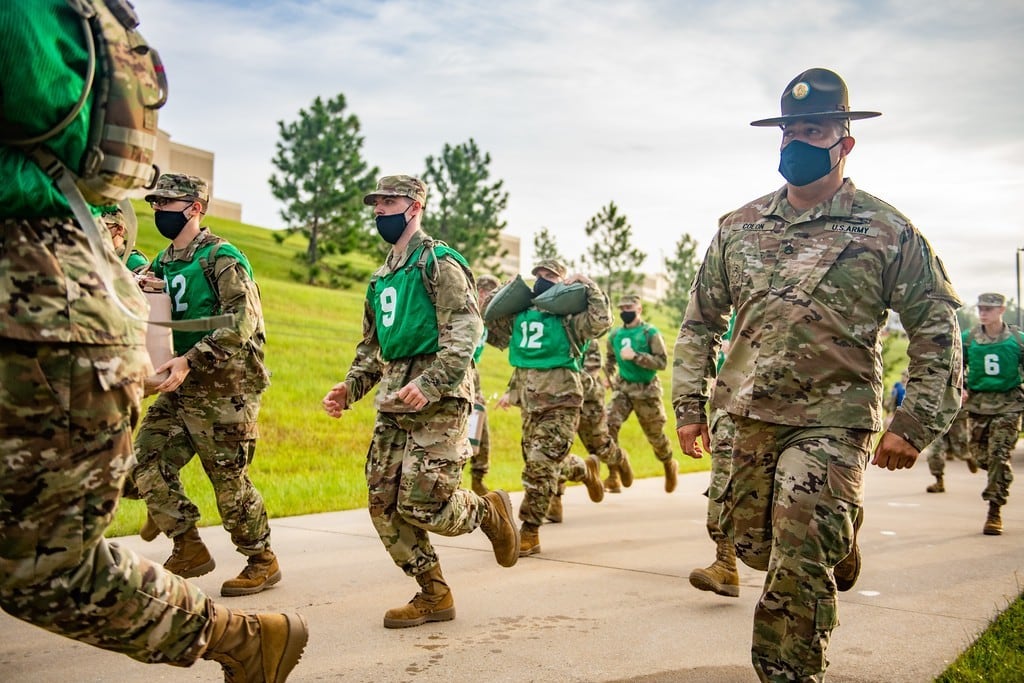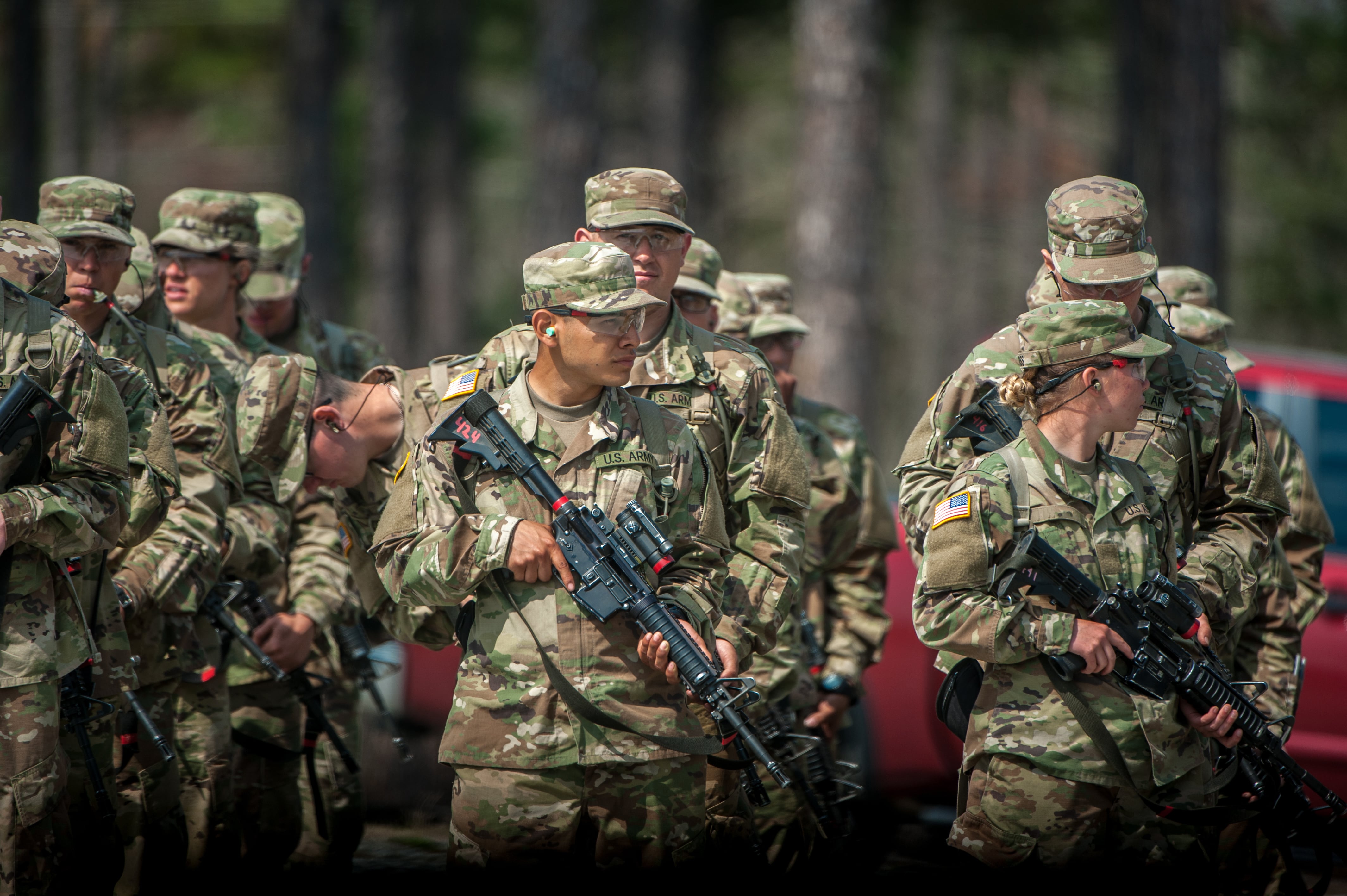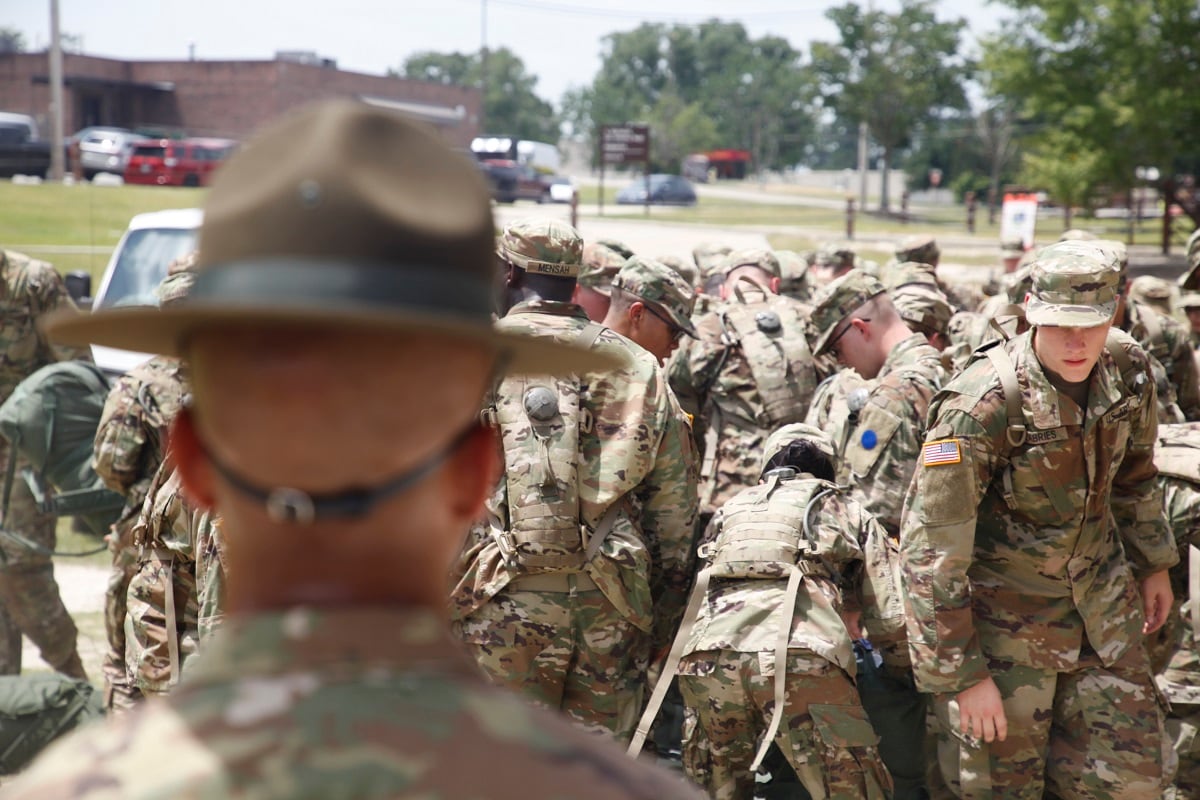Aiden, a housing- and food-insecure teenager living in Miami, remembers the excitement he felt when the Army recruiter gave him the news late last month: the service was beginning to enlist applicants without high school diplomas or equivalencies like the GED amid a horrible recruiting year.
“I felt like I had 1,000 pounds lifted off my chest,” he recounted in a phone interview with Army Times, asking that his full name not appear in the story. “It was a prayer that got answered for me.”
The military at large has struggled to enlist new troops in 2022, with the Army at only about 40% of its recruiting goals with mere months left in the fiscal year. But that shortfall for military recruiters presented a life-changing opportunity for Aiden.
An Indiana native, Aiden said he came one credit short of graduating high school after his stepfather kicked him out of his home on his 18th birthday. The only place he could find to stay was five miles away from his school and he “was living horribly,” he added.
“I couldn’t catch the bus [to school]...I just had to run there every single morning,” he explained. “I wasn’t even eating every day. I was struggling.”
RELATED

So he quit high school. He eventually found himself in Miami, with a bad job and no money — but with dreams of joining the Army or the Air Force.
When the new education policy was announced, Aiden dropped everything — including two job offers — to start his enlistment process. He scored a 57 on the Armed Forces Qualification Test, a score that placed him higher than 57% of Americans who take the test and made him eligible to join under the new education waiver program, which required applicants to have a 50 AFQT score and go to training before Oct. 1.
High school graduates need only score a 31 on the test, and an Army official confirmed to Army Times that soon that cutoff too will be waived for a limited number of recruits.
In crafting a policy exception that required higher AFQT scores, the Army recognized that recruits like Aiden may lack a completed high school education, but they still have the aptitude to perform as soldiers. And after Aiden joined, the Army’s policy still required that he complete a GED before he could reenlist.
Aiden emerged from the testing room last Wednesday, beaming over his scores. That’s when his recruiter gave him the news: the Army had suspended the non-graduate enlistment program, effective immediately.
RELATED

“I just don’t understand,” he said. “They just pulled the rug out from under me. I don’t even want a complicated job — I will fill whatever spot they give me...let me go to [training] and let me get my GED [after joining].”
Experts split on program’s merits, Army quiet
It’s not clear why the Army suspended the program less than a week after it went public, and the service has not provided an official statement on why it pulled the plug.
An unnamed official told Military.com that the rollback was influenced by the backlash the policy received in some circles accusing the service of lowering its standards to fill the ranks.
Another Army official acknowledged the backlash in an interview with Army Times last week, but argued that the policy rollback was “more to do with ensuring that we set the recruits...up for success” rather than “perception of a lowered standard” to join.
Whatever the reason for the change, experts on recruiting quality and personnel policy split on whether the Army made the right call.
Kate Kuzminski, who heads the Military, Veterans, and Society Program at the Center for a New American Security think tank, said the Army made a “prudent” call in reversing the education waivers.
Kuzminski’s emailed statement cited studies that show “the percentage of high-quality recruits in a service at any given points correlates highly with tactical effectiveness (as measured through gunnery scores and other proficiency tests).”

She added that “higher waiver usage” frequently leads to “increased disciplinary removals from service.” She did concede, however, that those who managed to join during the brief window of opportunity “demonstrated a high desire to serve at a time when the Army is wrestling with a recruiting crisis.”
RAND’s top recruiting and retention policy expert, senior economist Dr. Beth Asch, sees the situation differently, although she noted in a phone interview that recruits who did not graduate from high school are more likely to wash out during their first contract, including both GED-holders and those without GEDs.
Yet, according to Asch, “it made eminent sense” for the service to waive the high school graduation requirement for a limited proportion of hopeful soldiers in today’s recruiting environment. Current Defense Department policy only requires that 90% of each recruiting cohort have high school diplomas, she explained, adding that GED-holders and high school dropouts have similar outcomes.
“If you look at the long history of the [all-volunteer force], there have been many years where the Army has brought in non-high school diploma graduates,” she said. “You can judge a recruit at the individual level...but from the standpoint of the enlistment cohort [all soldiers recruited in the same given year], bringing in some non-high school diploma graduates doesn’t really change the outcome of the cohort all that much.”
According to DoD data, tough recruiting years — such as fiscal 2008 — saw the service bring in as much as a quarter of its new enlistees without diplomas. And 367 of them didn’t have a GED that year, either.
The Army National Guard even established an accredited high school for troops without diplomas or GEDs in Indiana during the Global War on Terror’s surge years. More than 500 soldiers earned their diplomas at Patriot Academy, which closed in 2013. A sister program dedicated to helping Guard troops earn their GEDs graduated nearly 13,000 troops in seven years, according to an archived Facebook page.

Asch said the service has “a little wiggle room” today, too, because virtually all of its recruits in recent years have been diploma holders. Her team at RAND developed a recruiting cohort outcome simulator that tries to project how a fiscal year’s new soldiers will perform overall based on their entry characteristics, such as education, age and more.
“Given that [the Army’s] having recruiting difficulties, it made eminent sense for them to [bring in non-graduates],” she said. “Having some percent that are non-high school graduates — especially if they’re higher aptitude — should not affect the overall quality of the force.”
An Army spokesperson declined to reveal how many applicants without a GED enlisted during this year’s short-lived window. It’s also not clear whether there was a maximum number of slots for the program or what proportion of this year’s cohort will have only GEDs.
Asch thinks that was a mistake that may have fueled some of the backlash.
“Where the Army might have confused people is whether this was going to be a limited program where some percentage of the recruits were going to be able to come in — within historical standards,” she noted. “It’s one thing to bring in some; it’s another thing to bring in a lot.”
Regardless of any perceived lower standards, or “so-called hollowing of the force,” she argued, the consequences of having an understrength Army outweigh the potential drawback of having a small proportion of new troops join without a diploma — if they don’t have any other factors against them such as moral or medical concerns.
“The devil’s in the details,” declared Asch.
Davis Winkie covers the Army for Military Times. He studied history at Vanderbilt and UNC-Chapel Hill, and served five years in the Army Guard. His investigations earned the Society of Professional Journalists' 2023 Sunshine Award and consecutive Military Reporters and Editors honors, among others. Davis was also a 2022 Livingston Awards finalist.
